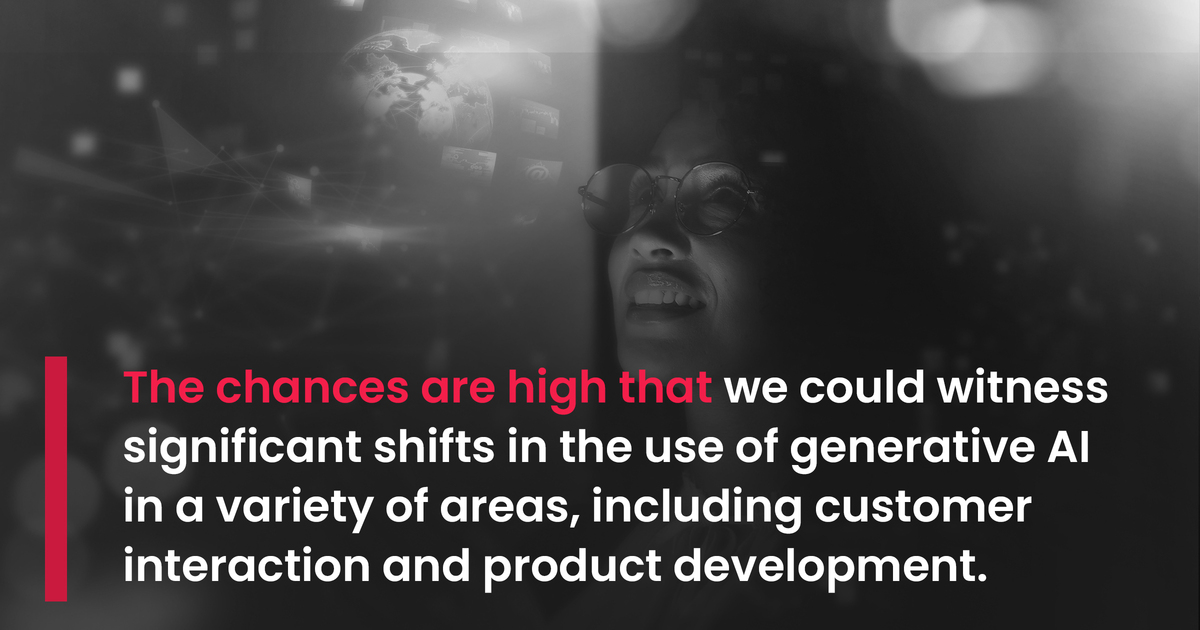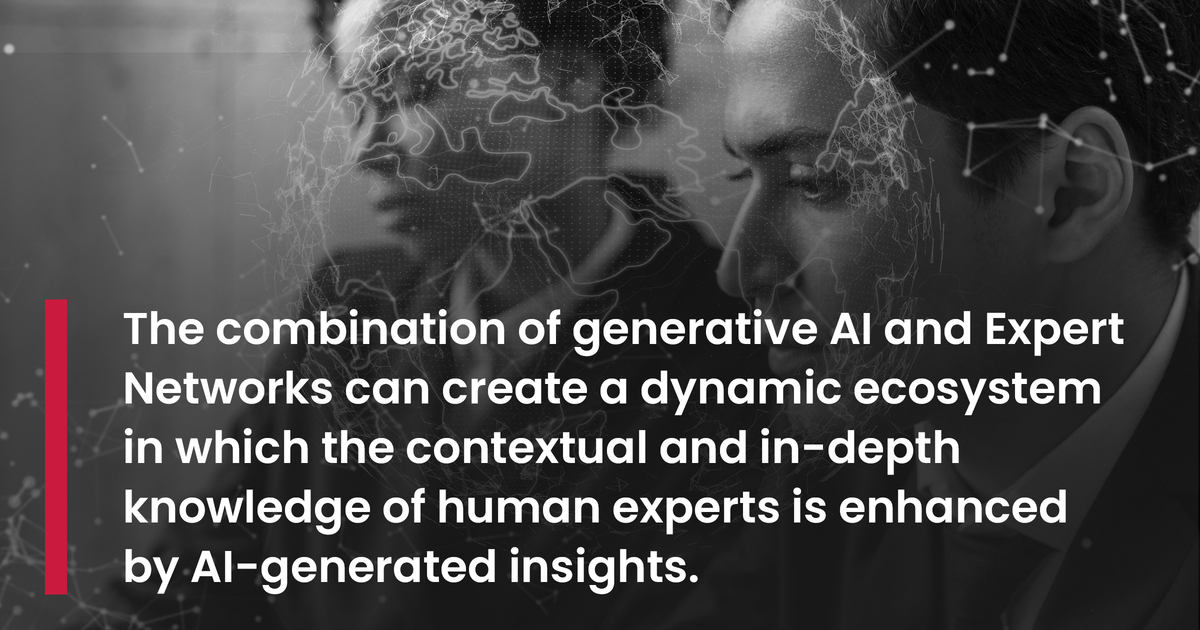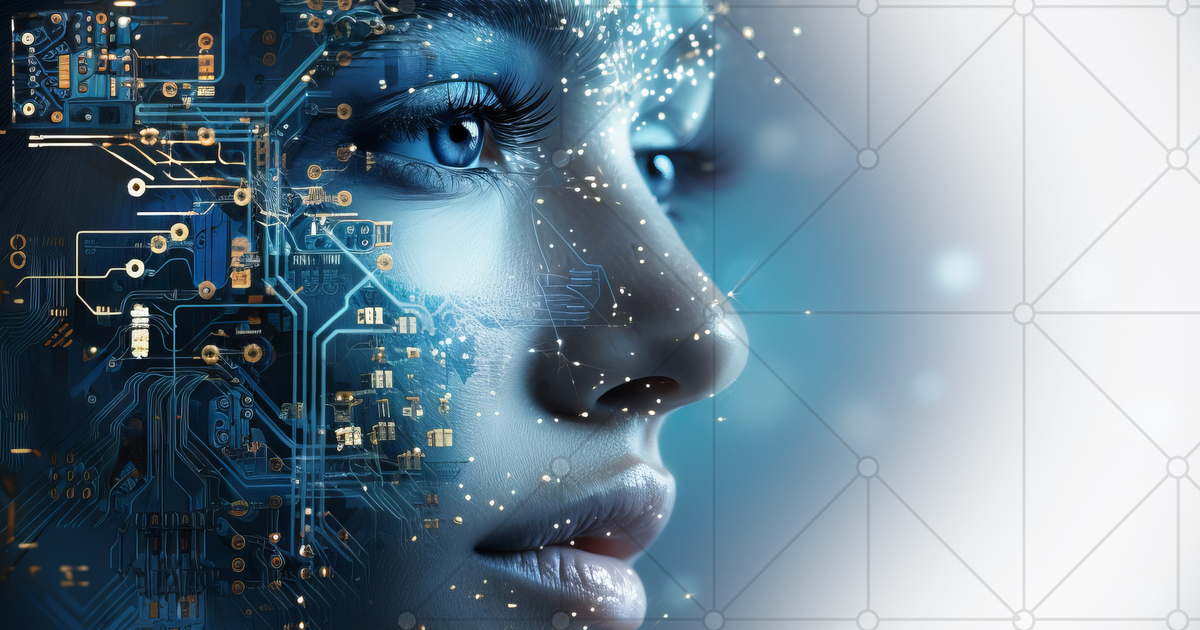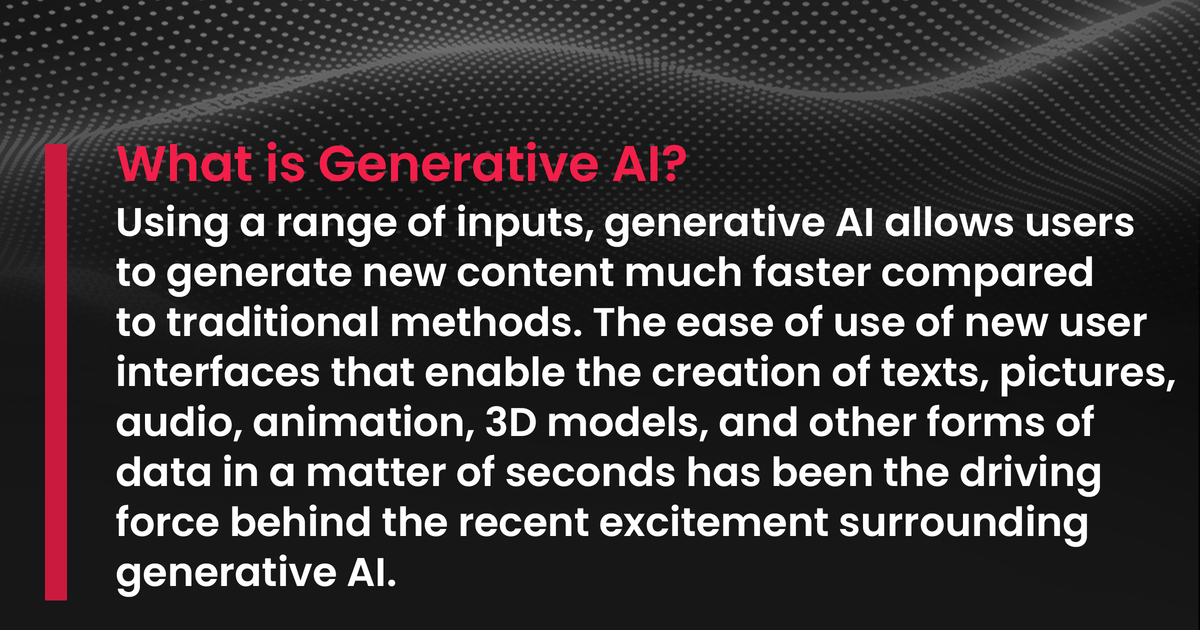The breakthrough innovations in generative artificial intelligence and its mass-market models will undoubtedly make 2024 the year to be remembered as a turning point in the history of economy and business. Why? Because thousands of businesses will realize the enormous potential it has for almost every industry. The capabilities, accessibility, and scalability of this cutting-edge technology will soar to new heights, spurring its broad adoption.
Sales forecasts, supply chain optimization, and product development are just a few of the fields where generative AI has already shown great promise in 2023.
Simplified processes and improved decision-making in the supply chain have all resulted from the tech’s capacity to evaluate massive datasets, spot trends, and offer insights. How will Expert Networks respond to the increasing use of AI? Will generative AI influence the way Expert Networks work? It could be said for certain that the future will be reimagined with generative AI creating revolutionary partnerships between industries.
How Exactly Does Generative AI Work?
Neural networks are used by generative AI models to find patterns and structures in existing information to produce new and unique content. The exciting field of generative AI makes use of a variety of methods, such as deep learning algorithms, to find patterns and produce new results according to them.
A generative AI model must be fed a sizable dataset of examples, including text, audio, video, and image samples, during its training. Subsequently, the model examines the correlations and patterns in the information that has been fed into it to fully understand the fundamental principles dictating the content.
It learns a probability distribution and uses that to obtain new data. Furthermore, in order to increase the likelihood of producing accurate results, it continuously modifies its parameters.
Say you feed a generative model a dataset of cat photos. The model can then produce new images of cats by sampling from the material it has been fed. It can modify the output to ensure that it is more realistic and better fits the user’s preferences.
Reimagining the Future with Generative AI
By 2024, revolutionary developments will enable generative AI to overcome its current constraints, which include data limits and computing obstacles.

In addition, the larger the amount of training data that is collected from diverse sources and human feedback, the better the generative models will be at comprehending and replicating the complexities of human language and reasoning. With this in mind, here are some of the things we might expect from GenAI in the near future:
- In the finance industry, AI-powered predictive analytics will change how risk management and investment strategies are implemented.
- In computation, enhanced generative AI models will be able to operate at the frontier of computation thanks to specialized hardware infrastructure and improved AI chips.
- An enhanced customer experience can be obtained thanks to human-like talking abilities. AI-powered virtual shopping assistants, for instance, can undertake online conversations that are quicker and more sympathetic.
- In manufacturing, generative AI can accurately predict variations in demand, possible risks in supply chains, and the probability of system malfunctions. This can help to save costs and improve risk management, among other benefits.
- In the technology sector, businesses will continue to employ generative AI to quickly test new solutions and evaluate vast amounts of data. This leads to the production of new goods and innovative services at breakneck speed.
- The automotive sector is already using generative AI to design and test new vehicles. This allows companies to introduce more innovative features in a shorter period of time.
- In the healthcare sector, generative AI helps medical experts and students train in a safe, controlled environment by creating realistic simulations that mimic a wide range of health issues.
Generative AI in Expert Networks: A Revolutionary Partnership
Generative AI, which is well-known for its capacity to evaluate large datasets, spot trends, and forecast results, makes it an invaluable tool for enhancing human knowledge.
At the same time, Expert Networks – which connect companies with a vast pool of seasoned experts from a variety of fields – offer insights that computers are still unable to replicate to the full extent.

In the healthcare industry, for example, generative AI can evaluate medical data on a never-before-seen scale, offering preliminary diagnosis or therapy recommendations. These AI-generated suggestions can then be improved by medical specialists who are selected by Expert Networks for their clients.
In the business sector, cooperation such as this helps organizations make decisions with greater accuracy. Market data, consumer patterns, and economic indicators can all be processed by generative AI, which can then provide preliminary insights to be used by business specialists to offer more accurate information.
Final word:
We can expect generative AI to greatly evolve in the years to come and witness its massive impact on healthcare, finance, transportation, and a myriad of other industries. In addition, the increasing collaboration between generative AI and Expert Networks will benefit numerous organizations and experts, improving decision-making and stimulating innovation. Human and artificial intelligence will work together harmoniously to address the world’s most important problems.
Suggested reading:
Data Science Evolves Rapidly. What Are the Five Major Trends for 2024?
Smart Cities Evolution and the Role for Expert Networks
How Expert Networks can help companies to keep up with industry trends
Share to


